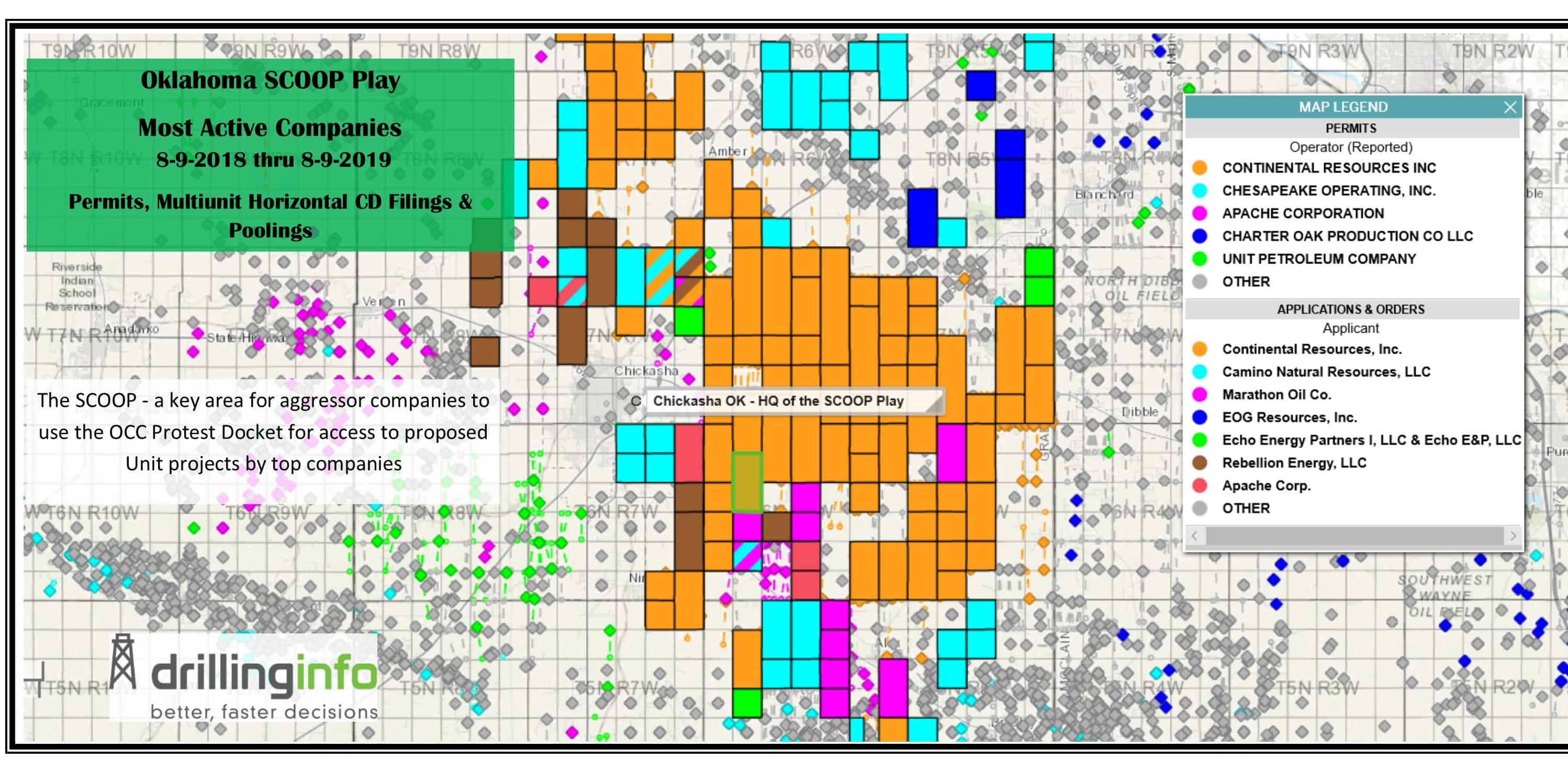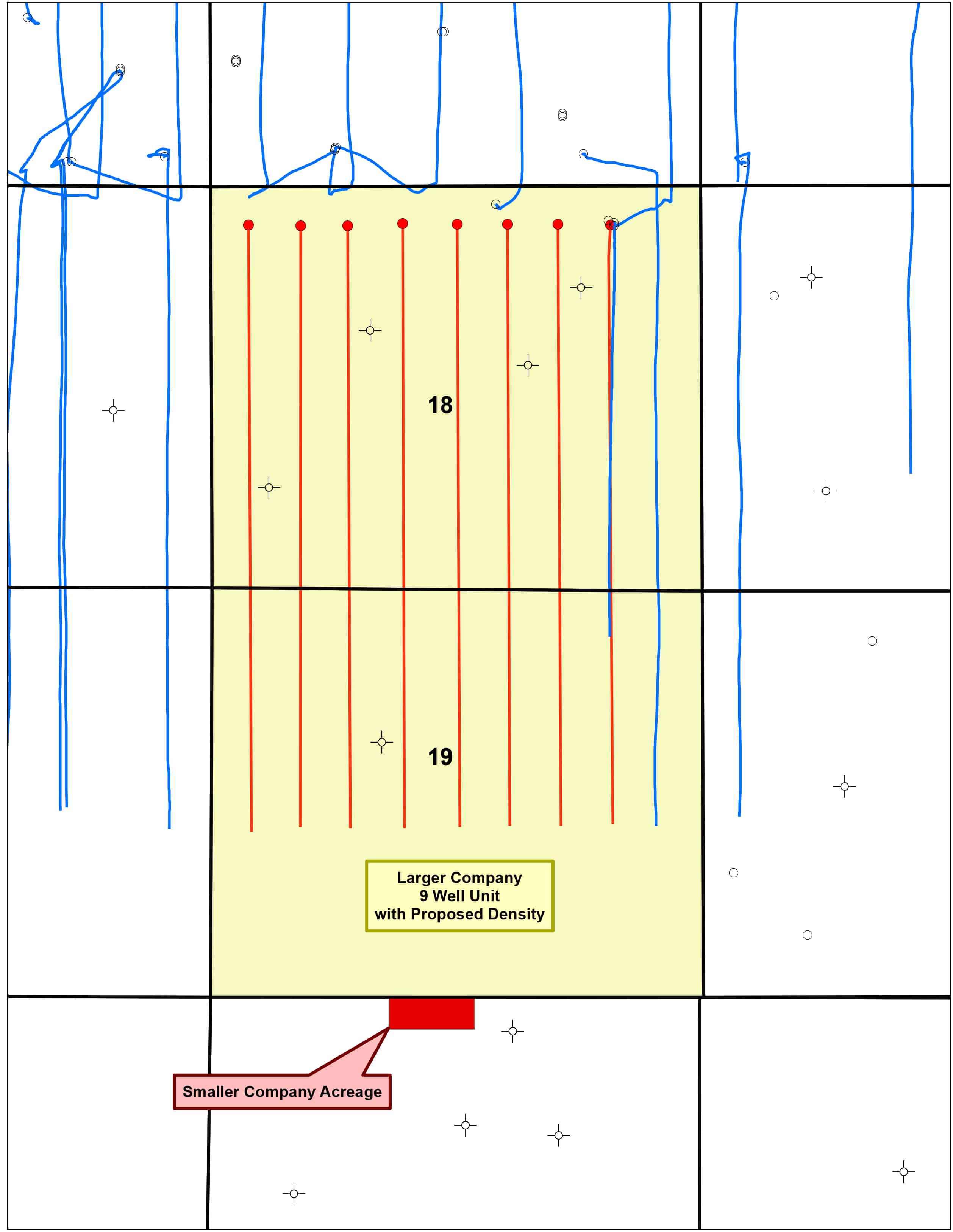
Oklahoma SCOOP is one of the hottest drilling fairways in the U.S.
On Aug. 1, an Oklahoma Corporation Commission (OCC) regulation that will change the way aggressive—usually smaller—companies often leverage their way into larger companies’ drilling units went into effect.
This new change is found in Title 165 (Oklahoma Statutes), Chapter 5-13-3 (d) and provides that anyone who wishes to protest an oil and gas company’s Conservation Docket (CD) application—including Spacing, Increased Density, Multiunit Horizontal Well, etc.—must register their protest in writing at the OCC and provide a legally sufficient reason for the protest.
Doesn’t sound like much of a big deal, but it is. Here’s why. When a CD application is protested, it automatically goes to the OCC “Protest Docket”—one of the most congested court dockets in the Oklahoma State court system, where getting a final order can take months, sometimes a year. Aggressive companies have this knowledge and use it to their advantage. Until now, “use” of this congestion was an unwritten, but entirely legal, tactic inked into their playbook and using it was as simple as showing up at the larger companies’ CD hearing and verbally announcing a protest existed.
OK … still sounds simple, and if a smaller aggressive company truly has a protest, they should be able to say so, right? Yes, but in many of these cases, the protesting company actually didn’t have a real reason to protest, but they knew they could back the larger company into a corner pending the release of their protest.
So how would that work? The smaller aggressive company would purchase a low-cost acreage position (essentially meaningless for any other purpose) in the fairway of a larger company. Then they would wait for the larger company’s play to develop and adjoin their small position. When it did, the smaller company would enter a protest causing the action to automatically move to the coagulated Protest Docket. It would remain there until the larger company let the smaller company into its deal (probably at actual cost). The smaller company would then release its protest allowing the case to return to the normal docket where it can be approved in a couple of weeks. Pirate tactic? Maybe. Misuse of the Protest Docket? Probably. But … legal? Yes. Even after the new regulation, it’s still possible, but takes a lot more work and money as a true geological or economic hardship reason for the protest must now be demonstrated.

Oklahoma SCOOP is one of the most likely areas for an OCC action to move to the OCC Protest Docket.
At Drillinginfo, we are constantly examining methodology of how our client companies interact with each other within the regulatory landscape of Oklahoma. Recently we examined several case studies at an Oklahoma development team strategy session and the most interesting of all was this exact scenario used by a small Tulsa-based company to leverage its way into a multi-well Increased Density unit proposed by a large Houston company.
See the map of this multi-well proposal below. The large company’s AFE completed cost on those nine wells would be roughly $75 million. It’s impossible to say what the smaller company’s investment in the parcel of acreage they used to protest and delay the large company’s project, but it was probably something like $50,000. So, a $50,000 investment is used to force a delay, but ultimately leverage their way into a $75 million project. The smaller company doesn’t need a team of geologists, land people, or engineers—just traders who can (using whatever methods they choose) locate and position themselves into fairways of companies they want “in-with” who do invest in all the research, science, and staff. This is the exact situation this new rule will address and seek to end.

Why does this matter to the Oklahoma upstream industry?
Larger companies – Can proceed more efficiently knowing the threat of a protest is reserved for those who have an actual reason to protest.
Smaller aggressive companies – Have just lost one of the handiest and lowest-cost techniques to gain access to deals.